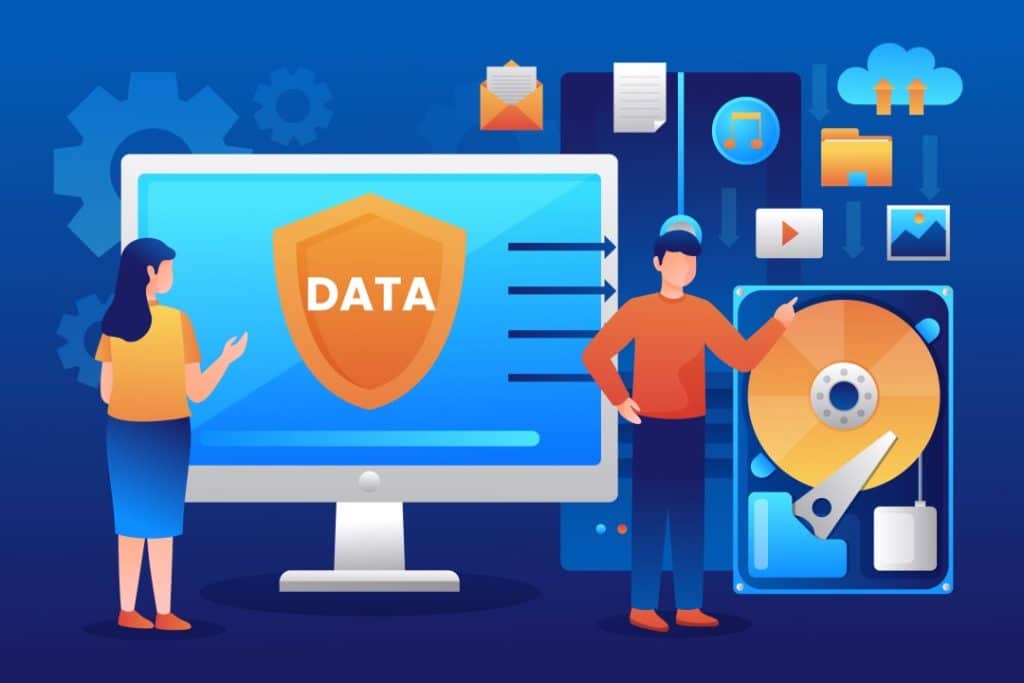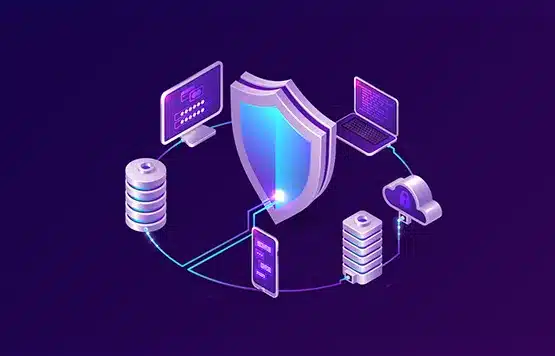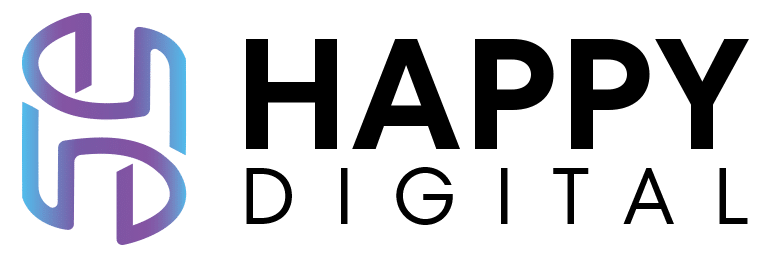As businesses increasingly embrace Software as a Service (SaaS) solutions, the landscape of data privacy and compliance has become a critical focal point. The stringent requirements set forth by regulations like the General Data Protection Regulation (GDPR) demand a meticulous approach to safeguarding user information. Navigating this intricate terrain presents challenges that transcend mere technicalities, delving into the core of how organizations handle and protect data. Stay tuned to uncover essential strategies and best practices that can empower businesses to not only comply with GDPR but also fortify their overall privacy framework in the realm of SaaS.
Understanding SaaS Compliance: Key Challenges and Solutions
Navigating SaaS compliance is crucial for businesses as it involves adhering to strict regulations like GDPR to safeguard user data and maintain trust. Understanding the intricacies of compliance not only mitigates legal risks but also bolsters customer confidence. This discussion will shed light on the importance of SaaS compliance and the key challenges businesses face in ensuring adherence to regulatory requirements.
What is SaaS Compliance and Why is it Important?
SaaS compliance is crucial for businesses as it ensures adherence to data protection regulations, such as the GDPR, safeguarding user information. By understanding the nuances of data privacy in the context of SaaS, companies can proactively address compliance challenges and uphold trust with their customers. Implementing robust compliance measures not only mitigates legal risks but also demonstrates a commitment to safeguarding sensitive data in the digital landscape.
Understanding Data Privacy in the Context of SaaS
Ensuring data privacy compliance within the realm of Software as a Service (SaaS) is paramount for businesses to uphold regulatory standards and safeguard user information integrity.
- Implement robust encryption methods for data protection.
- Regularly audit data access and usage within the SaaS platform.
- Develop a comprehensive SaaS privacy policy that aligns with relevant regulations.
- Provide ongoing employee training on data privacy best practices.
Navigating GDPR in SaaS: Essential Steps for Compliance
Navigating GDPR in the realm of SaaS requires a meticulous approach to compliance. Understanding the essential steps for GDPR adherence is pivotal in safeguarding user data and maintaining legal integrity. By following these steps, SaaS providers can navigate the intricate landscape of data protection regulations effectively.
Steps to Ensure SaaS Compliance with GDPR
In the realm of SaaS compliance with GDPR, addressing customer concerns about data privacy and compliance is paramount. By implementing essential steps to ensure GDPR compliance, SaaS providers can demonstrate their commitment to safeguarding user data. These measures not only fulfill regulatory obligations but also instill confidence in customers regarding the protection of their sensitive information.
Key GDPR Requirements for SaaS Compliance
| Requirement | Description | Importance |
|---|---|---|
| Data Protection by Design | Incorporating data protection principles from the outset of any project or service | High |
| Data Breach Notification | Mandatory reporting of data breaches to supervisory authorities within 72 hours | Critical |
| Right to Access | Providing individuals with access to their personal data upon request | High |
| Right to Erasure | Allowing individuals to request deletion of their personal data | High |
| Data Portability | Enabling individuals to transfer their data to another service provider | Medium |
| Consent Management | Obtaining clear and explicit consent from users before collecting their personal data | Critical |
| Record Keeping | Maintaining detailed records of data processing activities | High |
| Data Protection Officer | Appointing a Data Protection Officer (DPO) if required | Medium |
| Impact Assessments | Conducting Data Protection Impact Assessments (DPIAs) for high-risk processing activities | High |
| Third-Party Contracts | Ensuring compliance of third-party service providers with GDPR requirements | High |
Addressing Customer Concerns About Data Privacy and Compliance
Amid the rapid evolution of Software as a Service (SaaS), businesses are increasingly focused on addressing customer concerns related to data privacy and compliance, particularly in the context of navigating the complexities of GDPR requirements.
- Conduct regular audits to ensure data protection measures are up to date.
- Provide transparent information on data handling practices to build trust.
- Implement robust security protocols to safeguard sensitive information.
- Offer clear opt-in/opt-out mechanisms for data processing activities.

Data Privacy and Compliance in SaaS: Best Practices
Establishing a strong culture of compliance within your SaaS company is paramount to ensuring data privacy and meeting regulatory requirements. Implementing robust policies, conducting regular training sessions, and appointing dedicated compliance officers are key best practices to uphold. By prioritizing compliance efforts, SaaS providers can safeguard user data, mitigate risks, and foster trust with their customers.
Building a Culture of Compliance in Your SaaS Company
To foster a culture of compliance within your SaaS company, prioritizing data privacy and implementing best practices are essential steps. Here are four key strategies to build a strong compliance culture:
- Leadership Commitment: Ensure that top management is fully committed to compliance efforts and communicates its importance throughout the organization.
- Employee Training: Provide regular training sessions to educate employees on data privacy regulations, security protocols, and best practices.
- Clear Policies and Procedures: Establish clear and comprehensive policies and procedures regarding data handling, security measures, and compliance requirements.
- Regular Audits and Monitoring: Conduct regular audits and monitoring processes to assess compliance levels, identify gaps, and take corrective actions promptly.
How Happy Digital Can Achieve Compliance with GDPR
Achieving compliance with GDPR is crucial for Happy Digital to uphold data privacy standards. Understanding the regulations beyond GDPR is essential for SaaS companies to ensure comprehensive compliance. By staying informed and implementing necessary protocols, Happy Digital can navigate the complex regulatory landscape effectively.
Data Privacy Regulations Beyond GDPR: What SaaS Companies Need to Know
Understanding data privacy regulations beyond GDPR is crucial for SaaS companies like Happy Digital to navigate the complex landscape effectively. By implementing best practices in their privacy policy, Happy Digital can achieve compliance with GDPR and other global data privacy laws. This proactive approach not only helps mitigate legal risks but also fosters trust among customers, ensuring the protection of user data.
Happy Digital’s Best Practices for SaaS Privacy Policy
Implementing robust privacy policies is essential for SaaS companies like Happy Digital to navigate the complex regulatory landscape and ensure compliance with GDPR and other data privacy regulations.
- Conduct regular privacy assessments.
- Provide clear and transparent privacy notices.
- Obtain explicit consent for data processing.
- Implement strong data security measures.
The Importance of a Comprehensive SaaS Privacy Policy
A comprehensive SaaS privacy policy serves as a cornerstone in establishing trust between providers and users. Key elements such as data protection measures and compliance protocols are vital components that ensure user data security. Happy Digital’s commitment to stringent privacy practices exemplifies the importance of upholding robust policies in the SaaS landscape.
Key Elements of a Robust SaaS Privacy Policy
Navigating the complex regulatory landscape of data protection laws, a robust SaaS privacy policy is essential for businesses operating in the digital realm. When crafting a comprehensive privacy policy for SaaS, consider the following key elements:
- Data Collection: Clearly outline what type of data is collected from users and the methods of collection.
- Data Usage: Specify how the collected data will be used, ensuring transparency and user consent.
- Data Security: Detail security measures in place to protect the data from breaches or unauthorized access.
- Data Retention: Define the duration for which data will be retained and the procedures for its deletion upon request.
Addressing these elements in the privacy policy enhances transparency, builds trust with users, and aids in regulatory compliance.
How Happy Digital Ensures Data Privacy and Compliance
To exemplify robust data privacy and compliance practices in the digital landscape, Happy Digital demonstrates the meticulous crafting of a comprehensive SaaS privacy policy. Happy Digital‘s privacy policy outlines clear guidelines on data collection, storage, and usage, ensuring transparency and accountability to users. By detailing how personal information is handled, Happy Digital instills trust and confidence among its customers, showcasing a commitment to data protection and regulatory compliance.
The policy also addresses key compliance requirements, such as GDPR principles, data subject rights, and data breach notifications, reflecting Happy Digital’s proactive approach to safeguarding user data. Through continuous monitoring and updates to its privacy policy in line with evolving regulations, Happy Digital sets a benchmark for data privacy excellence in the SaaS industry.

SaaS Compliance: Mitigating Risks and Ensuring Security
Ensuring SaaS compliance is crucial for organizations to uphold the security and privacy of sensitive data. Encryption plays a pivotal role in safeguarding data integrity and confidentiality within SaaS environments. By implementing robust encryption measures, businesses can mitigate risks, adhere to regulatory requirements, and enhance overall data security protocols.
The Role of Encryption in SaaS Compliance
Implementing robust encryption protocols is essential for SaaS providers to uphold compliance standards and safeguard sensitive user data in today’s regulatory landscape. Encryption plays a pivotal role in protecting data both at rest and in transit, ensuring confidentiality and integrity. Here are four key aspects highlighting the importance of encryption in SaaS compliance:
- Data Protection: Encryption secures data from unauthorized access, reducing the risk of data breaches.
- Compliance Adherence: Encryption helps SaaS providers meet regulatory requirements by safeguarding sensitive information.
- Risk Mitigation: Effective encryption strategies mitigate cybersecurity risks, enhancing overall security posture.
- Customer Trust: Demonstrating a commitment to encryption instills trust in customers, showcasing dedication to data protection.
Happy Digital’s Approach to SaaS Compliance and Data Privacy
Navigating the intricate landscape of SaaS compliance and data privacy, Happy Digital has strategically crafted an approach that prioritizes user data protection while ensuring adherence to regulatory frameworks like GDPR. Happy Digital recognizes the importance of safeguarding sensitive information and has implemented robust data protection measures to uphold the highest standards of security and compliance.
One key aspect of Happy Digital’s approach is conducting regular audits and assessments to identify any potential vulnerabilities or areas of non-compliance. By proactively monitoring their systems and processes, Happy Digital can swiftly address any issues that may arise, ensuring continuous compliance with data privacy regulations.
Moreover, Happy Digital places a strong emphasis on transparency and accountability when it comes to handling user data. They provide clear and easily accessible information to users about how their data is collected, processed, and stored, empowering individuals to make informed decisions about their privacy.
Additionally, Happy Digital invests in ongoing training and education for their employees to ensure a deep understanding of data privacy best practices and compliance requirements. By fostering a culture of privacy awareness within the organization, Happy Digital strengthens its overall compliance posture and enhances user trust.
Common SaaS Compliance Pitfalls and How to Avoid Them
Navigating common SaaS compliance pitfalls is crucial for businesses striving to uphold data privacy standards effectively. One such challenge lies in managing third-party risks associated with SaaS usage, requiring thorough vetting of vendors and their data handling practices. By proactively addressing these pitfalls, organizations can enhance their overall compliance posture and bolster trust with stakeholders.
Managing Third-Party Risk in SaaS Compliance
Third-party relationships pose significant challenges in ensuring SaaS compliance, requiring meticulous oversight to mitigate potential risks effectively. When managing third-party risk in SaaS compliance, consider the following key practices:
- Due Diligence: Conduct thorough assessments of third-party vendors before engaging with them.
- Contractual Agreements: Clearly define data protection responsibilities in contracts to ensure compliance alignment.
- Ongoing Monitoring: Continuously monitor third-party activities to detect any compliance deviations promptly.
- Incident Response Plans: Establish clear protocols for addressing data breaches or non-compliance incidents involving third parties.
The Future of SaaS Compliance: Trends and Predictions
As the digital landscape continues to evolve, the future of SaaS compliance presents a dynamic and intricate terrain for businesses to navigate. Several trends and predictions are shaping the trajectory of SaaS compliance, influencing how organizations approach data privacy and security.
One key trend is the increasing focus on data localization requirements. Many countries are enacting laws that mandate data to be stored within their borders, impacting how SaaS providers manage data storage and transfer processes. This trend necessitates a reevaluation of data management strategies to ensure compliance with diverse and often conflicting regulations.
Another significant development is the rise of AI and machine learning in enhancing compliance efforts. These technologies offer capabilities for automating compliance tasks, detecting anomalies, and predicting potential risks. Integrating AI-driven solutions into SaaS platforms can streamline compliance processes and enable proactive risk management.
Additionally, the evolving regulatory landscape, with new laws and amendments being introduced globally, underscores the importance of staying informed and adaptable. SaaS providers must monitor regulatory changes closely and adjust their compliance measures accordingly to avoid penalties and maintain credibility.

Ensuring SaaS Compliance: Tools and Technologies You Need
To ensure SaaS compliance effectively, businesses must be equipped with the necessary tools and technologies. SaaS compliance audits play a crucial role in assessing adherence to regulatory requirements and data protection standards. By understanding what to expect from these audits, organizations can proactively address potential compliance gaps and safeguard user data effectively.
SaaS Compliance Tools and Technologies
| Tool/Technology | Description | Benefit |
|---|---|---|
| Data Encryption | Encrypting data at rest and in transit to protect sensitive information from unauthorized access | Enhances data security |
| Identity and Access Management (IAM) | Managing user identities and controlling access to sensitive data based on roles and policies | Improves data access control |
| Automated Compliance Reporting | Generating automated reports to demonstrate compliance with regulatory requirements | Saves time and ensures accuracy |
| Data Loss Prevention (DLP) | Monitoring and controlling data transfer to prevent unauthorized sharing or leakage | Protects against data breaches |
| Privacy Impact Assessment Tools | Conducting assessments to identify and mitigate privacy risks in data processing activities | Ensures proactive risk management |
| Consent Management Platforms | Managing user consent for data collection and processing in compliance with GDPR and other regulations | Ensures transparency and regulatory compliance |
| Security Information and Event Management (SIEM) | Aggregating and analyzing security data from various sources to detect and respond to threats | Enhances threat detection and response |
| Secure File Sharing Solutions | Facilitating secure sharing of documents and files between users and external parties | Ensures data protection during sharing |
| Compliance Management Software | Tracking and managing compliance requirements, audits, and certifications | Streamlines compliance management |
| Multi-Factor Authentication (MFA) | Adding an extra layer of security by requiring multiple forms of verification for user access | Reduces the risk of unauthorized access |
SaaS Compliance Audits: What to Expect
When preparing for SaaS compliance audits, companies should establish a culture of compliance that permeates all levels of the organization. This involves creating policies, procedures, and training programs that promote adherence to regulatory requirements. By instilling a proactive approach to compliance, SaaS companies can better anticipate audit expectations and demonstrate a commitment to data protection and privacy.
Building a Culture of Compliance in Your SaaS Company
How can a SaaS company foster a culture of compliance to navigate the intricate regulatory landscape effectively?
- Leadership Commitment: Ensure top management prioritizes compliance.
- Training Programs: Educate employees on regulations and best practices.
- Clear Policies: Establish transparent guidelines for data handling.
- Regular Monitoring: Conduct audits to assess compliance levels and identify areas for improvement.
Comprehensive Software Development Solutions
Unlock the potential of digital transformation with our bespoke software development services, engineered to foster innovation, maximize efficiency, and catalyze business growth.
Conclusion
In conclusion, navigating privacy and compliance challenges in SaaS, particularly in the context of GDPR and other global data privacy laws, requires a deep understanding of regulatory requirements and best practices. By implementing comprehensive SaaS compliance measures, businesses can safeguard user data effectively, mitigate legal risks, and build trust with their clientele. Staying abreast of evolving trends and leveraging appropriate tools and technologies will be essential to ensure continued compliance in the ever-changing landscape of data privacy regulations.
How Do Saas Providers Ensure Compliance With GDPR and Other Global Data Privacy Laws When Dealing With User Data?
SaaS providers ensure compliance with GDPR and global data privacy laws by implementing robust data protection measures, conducting regular audits, obtaining user consent, providing transparent privacy policies, and ensuring secure data transfers.
What Are Some Best Practices for Data Privacy and Compliance in the Saas Industry?
Implement robust data encryption protocols, conduct regular security audits, ensure data minimization practices, provide transparent privacy policies, offer user consent mechanisms, appoint a Data Protection Officer, and stay updated with evolving data privacy laws to uphold compliance in the SaaS industry.
How Can Businesses Like Happy Digital Effectively Achieve Compliance With GDPR Regulations?
Businesses like Happy Digital can achieve GDPR compliance effectively by implementing robust data protection measures, conducting regular audits, providing staff training, appointing a Data Protection Officer, and ensuring transparency with users about data handling practices.
What Are Common Pitfalls That Saas Providers Face in Terms of Compliance, and How Can They Be Avoided?
Common pitfalls for SaaS providers in compliance include inadequate data encryption, insufficient user consent mechanisms, and lack of robust data access controls. These can be avoided through regular compliance audits, staff training, and implementing robust data protection measures.


